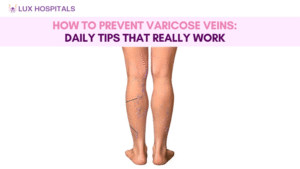Hiatal Hernia Treatment: Powerful Strategies for Effective Relief

A hiatal hernia can significantly impact your quality of life, causing discomfort and various gastrointestinal issues. Understanding hiatal hernia treatment options is essential for managing symptoms and improving your well-being. This comprehensive guide will explore effective strategies for treating a hiatal hernia, from lifestyle changes and medications to advanced medical procedures.
What is a Hiatal Hernia?
A hiatal hernia happens when a part of the stomach protrudes through the diaphragm into the chest cavity. This condition can lead to acid reflux, chest pain, and swallowing difficulties. There are different types of hiatal hernias, including sliding and paraesophageal hernias, each requiring specific treatment approaches.

Lifestyle Changes for Hiatal Hernia Treatment
- Dietary Adjustments: One of the most impactful hiatal hernia treatment strategies involves modifying your diet. Avoiding trigger foods such as spicy dishes, caffeine, and citrus fruits can reduce acid reflux symptoms. Incorporating smaller, more frequent meals can also help prevent the stomach from becoming too full, which can exacerbate symptoms.
- Weight Management: Excess weight can put additional pressure on the stomach and diaphragm, worsening a hiatal hernia. Adopting a balanced diet and regular exercise regimen can help manage weight and alleviate symptoms.
- Eating Habits: Eating slowly and chewing food thoroughly can reduce the likelihood of acid reflux. It’s also beneficial to avoid lying down immediately after eating. Instead, wait at least three hours to give your body time to digest.
- Elevating the Head of the Bed: Raising the head of your bed by about 6 to 8 inches can help prevent acid reflux by keeping stomach acid from flowing back into the esophagus while you sleep.
Medications for Hiatal Hernia Treatment
- Antacids: Over-the-counter antacids can provide quick relief from heartburn and acid reflux associated with a hiatal hernia. They work by neutralizing stomach acid.
- H2-Receptor Antagonists: Medications like ranitidine and famotidine reduce the amount of acid produced by the stomach. These can be effective for managing symptoms and providing longer-lasting relief.
- Proton Pump Inhibitors (PPIs): PPIs, such as omeprazole and esomeprazole, are more potent than H2-receptor antagonists. They work by blocking acid production, offering substantial relief from symptoms.
- Prokinetics: These medications help the stomach empty more quickly and strengthen the lower esophageal sphincter, reducing the risk of acid reflux.
Advanced Medical Procedures
For some individuals, lifestyle changes and medications may not be sufficient. In such cases, more advanced treatments may be necessary.
- Endoscopic Techniques: These minimally invasive procedures use specialized instruments to correct the hernia or strengthen the lower esophageal sphincter. Techniques like endoscopic fundoplication can help prevent acid reflux by wrapping the top of the stomach around the lower esophagus.
- Surgical Options: In more serious instances, surgical intervention may be necessary. The most common procedure is laparoscopic fundoplication, where the surgeon wraps the top of the stomach around the lower esophagus to prevent acid reflux and repair the hernia.
- Hernia Repair Surgery: For paraesophageal hernias, which are less common but potentially more serious, surgery is often necessary to reposition the stomach and repair the hernia. This procedure typically involves a laparoscopic approach, resulting in less postoperative pain and quicker recovery.
Managing Complications
Untreated hiatal hernias can lead to complications such as esophageal ulcers, bleeding, or strictures. Regular monitoring and prompt treatment are crucial for preventing these issues. If you experience severe pain, difficulty swallowing, or significant weight loss, seek medical attention immediately.
Psychological and Emotional Support
Dealing with a hiatal hernia can be challenging, both physically and emotionally. Consider seeking support from healthcare professionals, support groups, or counseling services to help manage the stress and anxiety associated with chronic symptoms.
Conclusion
Effective hiatal hernia treatment involves a combination of lifestyle modifications, medications, and potentially surgical interventions. By understanding your options and working closely with your healthcare provider, you can develop a personalized treatment plan that addresses your specific needs. With the right approach, you can significantly reduce symptoms and enhance your overall quality of life.
If your symptoms are severe or don’t improve, don’t wait—schedule an appointment at Lux Hospital for expert care and treatment. We focus on your comfort and well-being first.




















